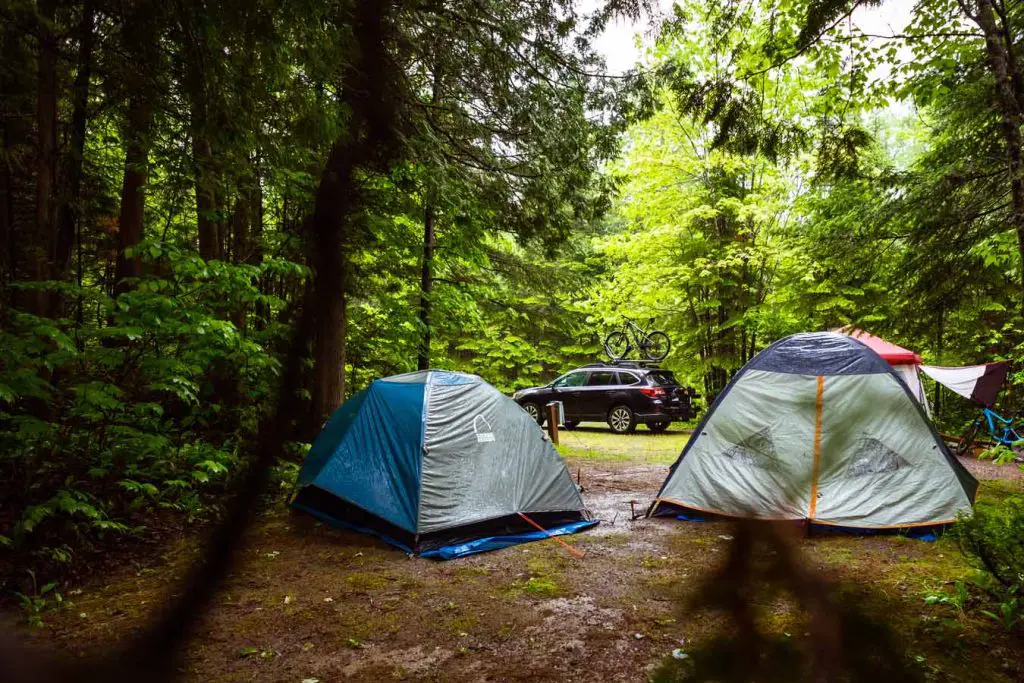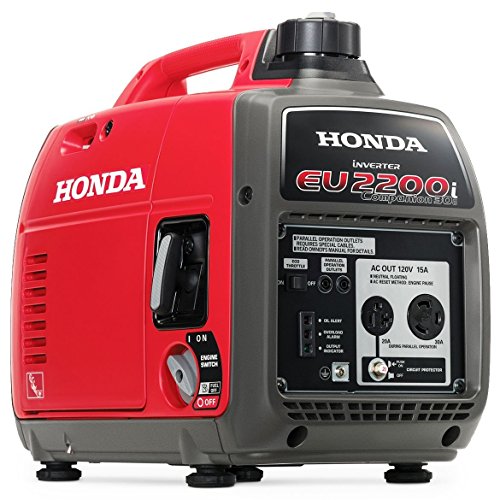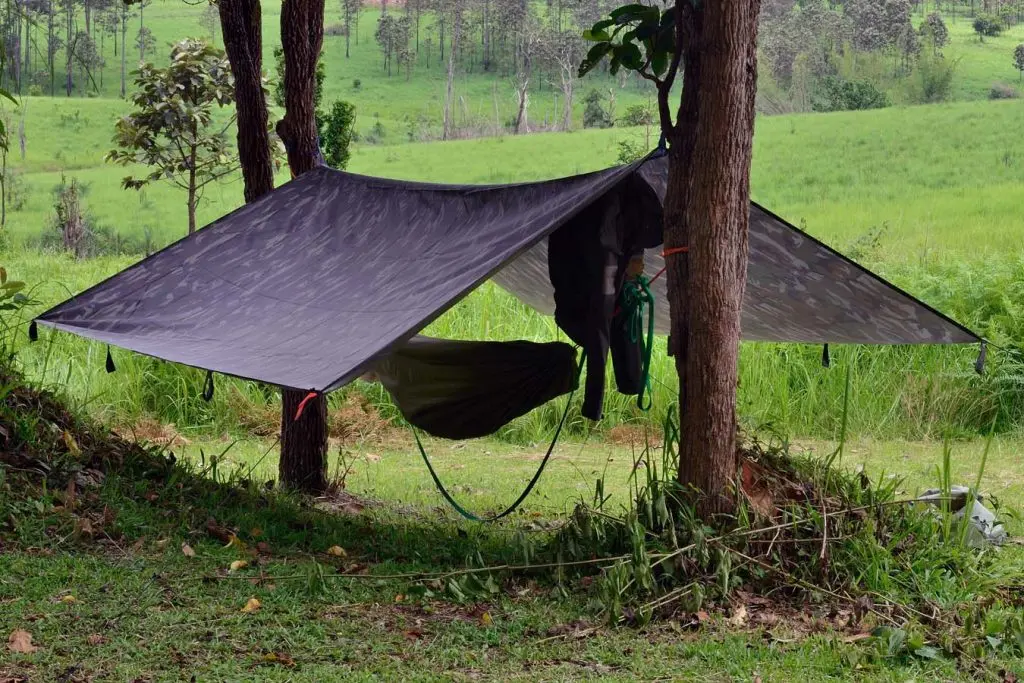The importance of having a quiet generator cannot be overstated, whether you’re in a unique situation, such as terrible weather, and there simply is no power coming from the grid, or are off the grid and need some kind of consistent power.
In particular, if you’re going camping, you may want something to power your night lights and electronics so that you can keep in touch with the world, even as you take your time to enjoy everything nature has to offer.
But you probably already know this. Like I mentioned, the importance of a generator cannot be overstated. What this article is about is the importance of a quiet generator. The most obvious reason why you might want to spend the extra dollars that a quiet generator costs over a regular one is simply that it gives you more peace of mind.
However, there are lots of other reasons, and lots of things to know before buying a quiet generator that will increase your chances of getting the right one.
In this review, I have included an extensive buyer’s guide with useful tips on quiet generators for camping as well as some of the best models you can buy on the current market. By the end, you should have a good sense of what to look for in a quiet generator as well as which ones are the best.
Why is having a quiet generator important?
There are plenty of reasons why it is a good idea to have a quiet generator. Below are some of the most important ones.
To comply with noise regulations
Your city or homeowners’ association may have some kind of rule for how much noise any piece of equipment can emit while on your property. For most of such organizations, that noise limit is about 75 decibels. Going above that noise limit may potentially attract a fine, and some very angry neighbors.
But it’s not just about the kind of distress you bring to others; being around 75 decibels of noise for extended periods could cause you a headache, and maybe even some long-term damage to your ears.
The rules are even stricter at campsites and RV parks, where Mother Nature and her sense of serenity are paramount and must be preserved at all times.
In such places, the noise limit is typically below 65dB for generators. Some go as low as 59dB or less, and that’s before 10pm. After 10pm, you are required to switch your portable generator off and switch to a solar charger or some other noiseless source of power.
Of course, the bulk of these restraints kick in when you are close to other people, or when you go to places run by organizations with rules. If you’re living alone, with the nearest neighbor a significant distance away, there probably aren’t as many restraints to your noise levels, except perhaps the ones you impose on yourself.
One of these that you will find yourself naturally gravitating toward, is that a noisy generator shouldn’t be running when you’re trying to sleep. Anything over 50dB can make catching some sleep a difficult endeavor. In that case, you may either want to keep the generator far from your home or just buy a quiet one altogether.
The special cases of an RV and Camping
Recreational vehicles and camping are the most common contexts in which having a quiet portable generator is important. Not only does it give your neighbors at the campsite peace of mind, but it also allows you to have peace of mind, which is probably what you went seeking out in the wild in the first place.
Having a noisy generator on your camping trip is probably going to make it a lot less fun than it would otherwise have been, not to mention it will be quite rude to the other people at the RV park or campsite.
They are more fuel efficient
Quiet generators tend to be more fuel efficient than regular ones. It’s not that the noise in a regular generator consumes fuel somehow, but rather that quiet generators tend to implement the latest advanced technologies, which cause them to adjust consumption according to the load.
They run with less intensity when the load is smaller and a higher intensity when the load is higher. That is why they are so quiet.
It’s also important to consider the type of fuel you use. Propane, for example, is way cheaper than gasoline, and can save you a lot of money when it is available.
Many quiet generators are dual-fuel generators, allowing you to have the best of both worlds, depending on which type of fuel is abundant at the time.

What is considered to be quiet for a generator?
A quiet generator will operate in the 50-65dB range, though there are some that are capable of going below this. This may sound like a lot, but it’s actually quite quiet.
The lower end of this range is quieter than your fridge or air conditioner when they are running.
To add to the quietness, you may also place the generator a little distance away from where you are, install a muffler, or build an enclosure, though the latter two are not necessary for most quiet generators.
How is the noise produced by a generator calculated?
The noise produced by a generator is measured in decibels, which are a measure of the intensity of sound. Decibels are used to measure the intensity of sound coming from any source, not just generators.
At the very bottom of the scale we have 0dB, which is the quietest sound that a healthy human ear can detect. From there, an increase of 3 decibels represents an increase of 2 times the intensity of the sound.
The decibel level is measured on a logarithmic scale, where the decibel level is 10 raised to the quotient of that level by 10.
The sound at x decibels is; 10 (x/10) times as powerful as the quietest sound at 0 decibels.
Similarly, the sound at x decibels is; 10 (x-y|10) times as powerful as the sound at y decibels.
If we had used a linear scale instead, decibels would have run into very large numbers.
This is mainly because the human ear has an incredible ability to detect a wide array of sounds. In order to communicate that vast array in a convenient way, we have to use a logarithmic scale.
The trick to be taken into account here is that sounds that seem pretty close to each other on the decibel scale could actually be vastly different in intensity in real life.
Remember, a difference of 3 decibel points represents a doubling of acoustic intensity, which is quite significant, particularly the higher up the scale you go.
What are decibel levels?
Now that we have an understanding of how sound intensity is calculated, let’s take a closer look at the decibel scale and where some common sounds lie on it.
The truth is that the way we perceive comparative loudness is somewhat psychologically biased, and it is hard to be objective about just how loud a sound is compared to another sound relying on our ears alone.
You may think one sound feels about twice as loud as another when they lie a whole 10 decibels apart on the decibel scale.
Take your AC, for example: it has a decibel level of about 60dB while your refrigerator should be around 50dB. That represents a tenfold increase in sound intensity, and yet, most people report that an AC is only about twice as loud as a refrigerator.
Similarly, the average dishwasher has a noise intensity of about 70dB, which is about 100 times as loud as your refrigerator. And yet most people will rate it only about 4 times as loud.
Another thing to take note of when dealing with quiet generators is that the noise levels aren’t a constant.
A generator that has been reported by its manufacturer as the quietest one will be at different levels depending on the load it is experiencing. It will obviously be quieter when dealing with a lighter one, and noisier when dealing with a greater load.
To give a sense of where different sounds lie on the decibel scale,
- the average nighttime in the countryside is at about 20dB
- A library is at about 40dB
- Normal speech is just above 60dB
- A vacuum cleaner is at about 70dB
- A lawnmower running on gasoline is at 90dB
- A jet flying over at a distance of 300 meters is at 100dB
- A rock band playing at full volume 5 meters away is at 110dB.
As a general rule, any noise above 85dB is potentially dangerous as it could lead to a loss of hearing. Listening to anything over 90dB or more, for more than 8 hours at a time. Once you go above 140dB, the noise will cause intense physical pain and immediate loss of hearing.

Power vs. noise levels – What is your priority?
There is something of an inverse relationship between power and noise levels when it comes to generators. If you’re looking to power a large stall outdoors and need a quiet inverter generator, you may be willing to tolerate more noise in exchange for greater power.
If, on the other hand, all you need is something to power your electric guitar as you have band practice in the garage, you will look for something quieter and won’t mind that it comes with less power. You might not even want an inverter generator. In such situations, a solar generator will do just as well.
The noise from an inverter generator also won’t matter when you’re using it in an environment that is already naturally noisy, such as a construction site. On the other hand, if you’re going somewhere naturally quiet and serene, such as a campsite, then you will want the quietest inverter generator you can find.
But it goes beyond a simple tradeoff between power and noise. Your power needs are what will ultimately determine what kind of inverter generator you will go for.
You will need a certain amount of electricity to power all of your most essential items and calculating that will help you figure out what power level you should go for when purchasing an inverter generator.
If you’re looking for an inverter generator to power the whole house, then you will need a large one, and also a transfer switch so you can connect directly to the circuits in your house.
On the other hand, if you only want to plug in a few devices into the generator at a time, then a small and quiet generator should do just fine.
How to keep your generator quiet
While you won’t need to do much to keep a quiet inverter generator quiet, there are a few things you can do to silence loud contractor-type generators:
- You can place them at an extended distance from where you are. The farther away the generator is, the farther the sound waves will spread before they get to you, losing a lot of their power on the way.
- You can also use clever positioning to dampen the noise from the generator. You can significantly reduce the noise level produced by the generator by reducing the level of vibration of the motor. To do this, place it on a level surface or use leveling feet to keep it level.
- The most effective way to keep a noisy generator quiet by far is to use a muffler or enclosure. Mufflers won’t work unless the generator has been built to be compatible with them. Check the manufacturer specs to ensure the generator is compatible with mufflers. Otherwise, something that is even more effective than a muffler and that you can use with any generator is an enclosure. A well-designed enclosure will deflect and absorb the sound waves, keeping the generator quiet. Make sure your enclosure allows enough airflow, though, or else your generator might overheat. A good enclosure can reduce the noise from a generator by up to 10dB. You can even make one yourself if you’re a DIY enthusiast. To make the enclosure even more effective, consider adding sound-absorbing materials, such as acoustic barriers, rubber waffle pads, and sound absorbing foam.
Recommenced products
01 – Atima 2000 Watts Inverter Quiet Camping Generator
Product Dimensions – 21.65 x 19.69 x 12.99 Inches | Weight – 50.6 Pounds | Running Wattage – 1600 Watts | Surge Wattage – 2000 Watts | Half-Load Run Time – 7.6 Hours | Fuel Type – gasoline | Fuel Tank Size – 1 Gallons | Noise Level – 52dB
No products found.
This is a very lightweight portable inverter generator with an ergonomic handle and compact design that makes it extremely easy to carry and take with you anywhere. The engine is a Yamaha engine, which is generally known for giving consistent performance and being made of high quality parts.
The Atima is also insanely easy to operate and supports parallel setups in case you want to put a bunch of them together to get more power. The decibel rating is a measly 52dB at ¼ load, making this generator about as quiet as your fridge. Note, however, that it will get noisier as the load gets heavier. However, even then, it will still be much quieter than your average generator.
The gas tank on the Atima has a capacity of about 1 gallon and the maximum power output at start is 2000W while the running power is 1600W, which is actually pretty decent.
The aesthetics on the Atima are also solid, with a sensible Japanese design and a sleep and beautiful overall look.
Pros
- Great design
- Compact and lightweight
- Comes with extra maintenance tools
- Comes with a 2-year warranty
Cons
- Does not have a fuel indicator
02 – Wen 56125i 1250-Watt Portable Inverter Quiet Camping Generator
Product Dimensions – 17 x 9 x 12.5 Inches | Weight – 31.6 Pounds | Running Wattage – 1000 Watts | Surge Wattage – 1250 Watts | Half-Load Run Time – 5 Hours | Fuel Type – gasoline | Fuel Tank Size – 0.7 Gallons | Noise Level – 51dB
- Extremely quiet operation comparable to the sound of a normal conversation according to the US Department of Health and Human Services
- EPA III and CARB Compliant 60cc OHV engine produces 1250 surge watts and 1000 rated watts
- Great for campgrounds, construction sites, tailgates and power outages
- Produces clean power to safely operate and prevent damage to sensitive electronics such as smart phones, tablets, televisions and computers
The Wen is one of the quietest inverter generators on the market by far. At ¼ load, it only produces about 51d of noise, which is about the same level of noise as normal conversation inside the house. Of course, it gets noisier as the load increases, but it is still exceedingly quieter than most other inverter generators on the market.
This generator is light, but not nearly as compact as its competitors, such as the Atima. That said, the handle is ergonomic and makes the generator easy to carry.
The inverter on the Wen is also design to smooth out the power and reduce the number of drops and spikes in order to produce a clean sine wave that is safe for your sensitive electronics. It is therefore quite safe to use with your laptop or phone.
Another great win for this generator is its fuel efficiency. It has a long runtime and the eco-mode ensures the fuel consumption corresponds to the load on the generator.
Pros
- Comes with a 2-year warranty
- Great duels efficiency
- CARB compliant
- Very low noise levels
Cons
- A little bulky
- Quite pricey
- Does not have fuel indicator
03 – Yamaha EF2000iSv2 Quiet Camping Generator
Product Dimensions – 19.3 x 11 x 17.9 Inches | Weight – 44.1 Pounds | Running Wattage – 1600 Watts | Surge Wattage – 2000 Watts | Quarter-Load Run Time – 10.5 Hours | Fuel Type – gasoline | Fuel Tank Size – 1.1 Gallons | Noise Level – 51.5dB
No products found.
What stood out the most for me about the Yamaha EF2000iSv2 is its cool retro design. It looks great at a tailgating party or on a camping trip and will definitely get you some curious looks and lots of compliments. It also has a compact design and is super light, making it highly portable. The carry handle is also ergonomic, making this generator easy to carry.
The fuel tank has a capacity of 1.1 gallons and the smart throttle on the inverter adjusts fuel consumption based on the load, making this generator highly fuel efficient.
Another good things about this generator is that it comes with a fuel indicator, unlike many other portable generators, so you know just how much fuel you have left.
Add to all this the spark arrestor and muffler built into the generator and you have a solid winner.
Pros
- Comes with a 3-year warranty
- Has a great retro design
- Comes with a fuel indicator
- Has a muffler built in
Cons
- Very expensive
- Not suitable for use at high altitudes
04 – Honda EU2200IC 2200-Watt Portable Inverter Super Quiet Camping Generator
Product Dimensions – 21 x 20 x 13 Inches | Weight – 51 Pounds | Running Wattage – 2000 Watts | Surge Wattage – 2200 Watts | Half-Load Run Time – 8.1 Hours | Fuel Type – gasoline | Fuel Tank Size – 1 Gallons | Noise Level – 48dB
- Portable Design: Weighing just 46.5 pounds, this Honda generator is lightweight and easy to transport.
- High Wattage: With a maximum output of 2200 watts, it provides ample power for most household and commercial needs.
- Fuel Efficient: Powered by gasoline, it offers excellent fuel efficiency and long runtime on a single tank.
- Quiet Operation: Equipped with a super quiet inverter technology, it operates at a low 50 dB(A), making it ideal for residential use.
This generator by Honda is wildly popular. So popular, in fact, that it is currently the best seller in its category on Amazon. It has a simple red and black design which is both compact and lightweight with an ergonomic carry handle that makes it highly portable.
To be honest, there are other generators on this list that are quieter than the Honda EU2200IC. However, a noise level of 53dB at ¼ load is still decent and is not much louder than your refrigerator. Even your television is louder than this. Of course, it gets louder as the load increases, but not so much that it becomes a nuisance. This generator can be used in places where you will be around other people, such as a campsite.
The inverter on the Honda is great at adjusting fuel consumption according to the load, making it highly fuel efficient. It also produces clean energy that is safe for your electronics.
The 1-gallon gas tank can produce a long runtime and the generator is easy to operate.
Pros
- Comes with a 3-year warranty
- High fuel efficiency
- Lightweight and compact
Cons
- Quite pricey
- No fuel indicator
05 – Generac 6866 iQ2000 1600 Running Watts Super Quiet Camping Generator
Product Dimensions – 20 x 12.6 x 16.9 Inches | Weight – 46.2 Pounds | Running Wattage – 1600 Watts | Surge Wattage – 2000 Watts | Half-Load Run Time – 5.7 Hours | Fuel Type – gasoline | Fuel Tank Size – 1.06 Gallons | Noise Level – 48dB
- AC Rated Output(Running/Starting): 1600/2000 Watts; AC Rated Voltage: 120V
- PowerDial integrates start/run/stop functions into 1 easy-to-use dial
- PowerBar monitors and displays wattage used; Electronic Fuel Gauge displays remaining fuel; Runtime Display show how much time is left before refueling
- Fuel Capacity: 1.06 Gallons; Runtime (50% - 25% Load): 5.7 - 7.7 hrs; Full Load Fuel Consumption (gallons/hour): 2.85; Displacement: 80 cc; Oil Type: SAE 10W-30
The Generac is unique from other kinds of quiet inverter generators in that it has a digital display showing all kinds of data, such as current power usage, remaining runtime, and the remaining fuel. With such information, it is easy to know just where you stand in relation to your power usage and adjust accordingly. This is a great feature in the Generac and it is enough to make this a worthy buy.
The Generac also has the other basics, such as a long runtime, an inverter that produces clean energy and is safe for your electronics, and a lightweight and compact design. It is also very user-friendly and has 3 usage settings: Economy, Standard, and Turbo. Lastly, it is parallel ready if you need more power.
Pros
- Comes with a 3-year warranty
- Very quiet operation
- Digital display with lots of useful information
Cons
- A little pricey
Conclusion
And with that we come to the end of our review. My favorite remains the Atima. It has all the basics and very good fuel efficiency, while remaining affordable enough for just about any budget.
That said, all of the inverter generators listed here are highly rated and will give you good service. The included buyer’s guide should also help you pick out your own quiet generator with ease.
Ultimately, the whole point of a quiet generator for camping is that you enjoy the serenity and silence of nature without compromising your creature comforts, like your smartphone. The products on this list are bound to help with that. Until next time, have fun!
Related guides
Guide To Finding The Best Camping Wood Stove
How To Find The Best Wood Burning Tent Stove
Guide To Finding The Best Small Camping Wood Stove
26 tips to keeping your tent warm with and without electricity







